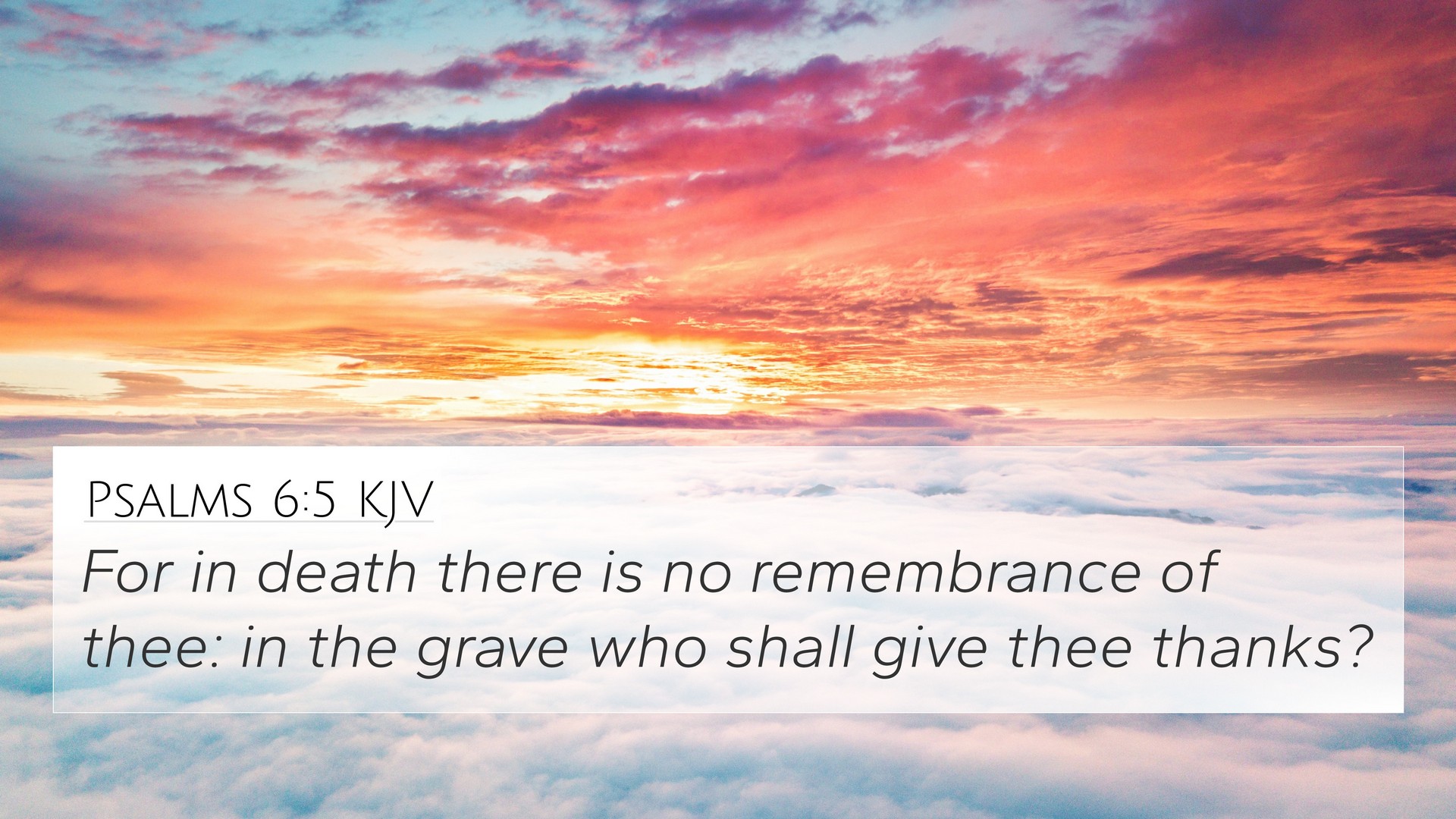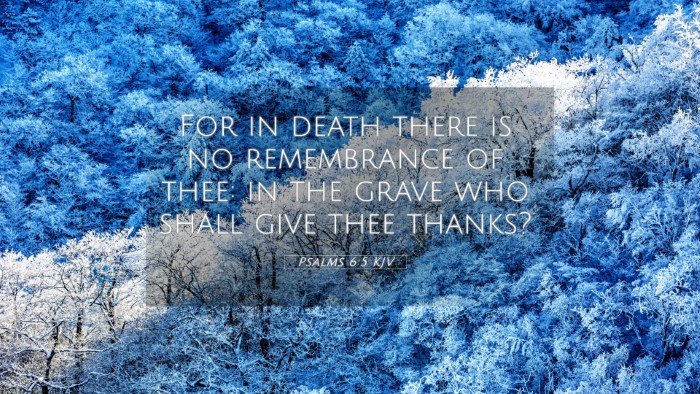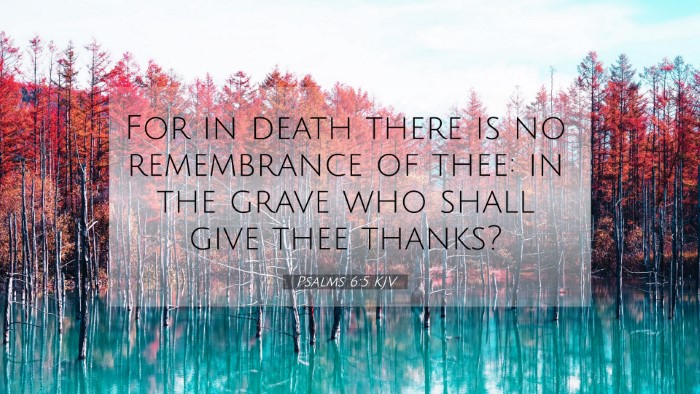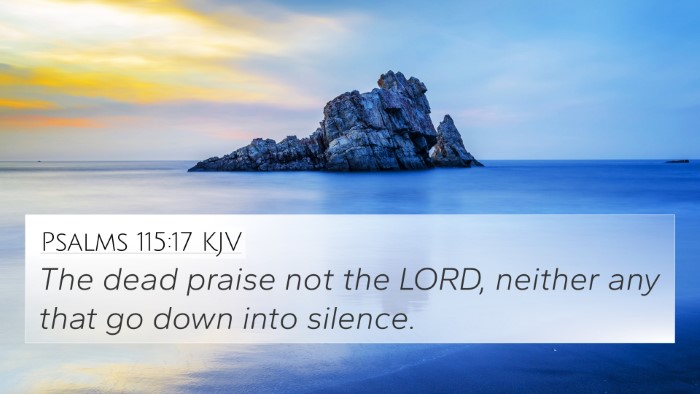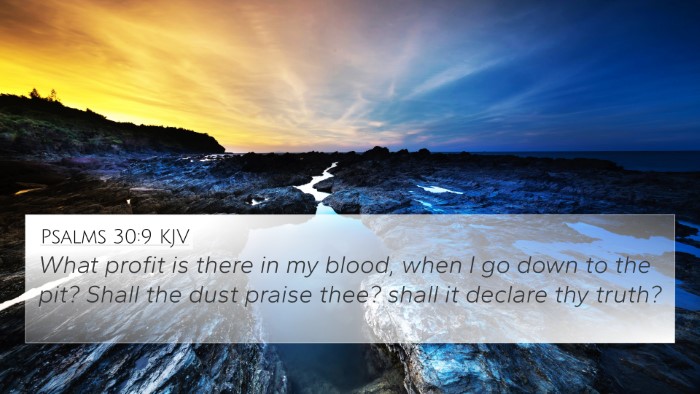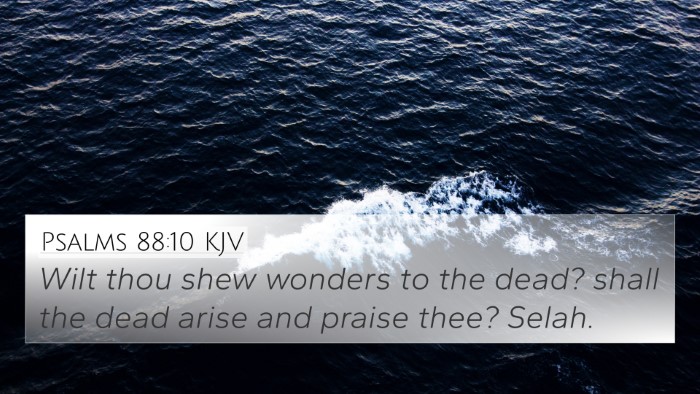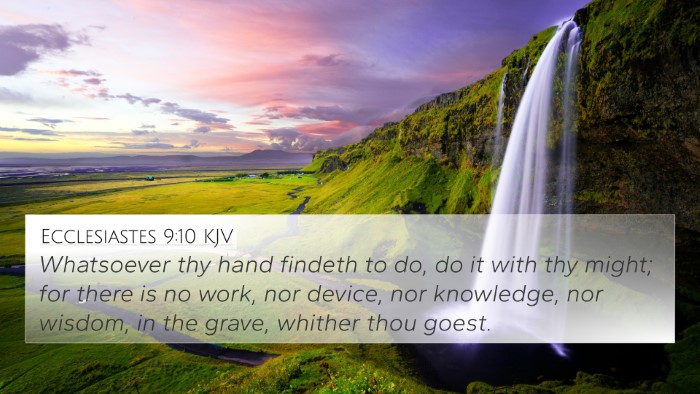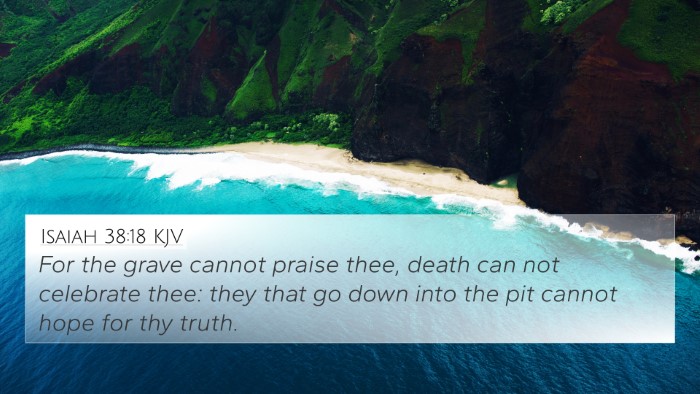Psalms 6:5 Meaning and Interpretation
Psalms 6:5 states: "For in death there is no remembrance of You; in the grave who will give You thanks?" This verse presents a heartfelt plea from the psalmist, expressing a deep concern about mortality and the implications it has on one's relationship with God.
Summary of Insights from Public Domain Commentaries
This verse resonates with themes of mortality, the importance of life, and the desire to serve God while the opportunity remains. The insights from various commentaries shed light on the significance of this scripture:
- Matthew Henry: Henry emphasizes the urgency of calling on God while one is alive. He points out that death represents a separation from the possibilities of praising God, as the dead cannot engage in worship or remembrance of Him.
- Albert Barnes: Barnes elaborates on the psalmist's feeling of despair, highlighting that the fear of death prompts a sincere desire for deliverance. He suggests that the psalmist believes that life is the only time to express gratitude and acknowledge God’s mercy.
- Adam Clarke: Clarke interprets this verse as an appeal to God’s compassion. He notes that the psalmist is urging God to act before it is too late, reinforcing the idea that earthly life is essential for glorifying God.
Thematic Connections and Bible Cross-References
Understanding Psalms 6:5 invites a comparative analysis with several other biblical passages that deal with similar themes of life, death, and worship. Here are some cross-references worth exploring:
- Ecclesiastes 9:5: "For the living know that they will die, but the dead know nothing, and they have no more reward, for the memory of them is forgotten." This verse highlights the transient nature of life and the silence of death.
- Isaiah 38:18-19: These verses emphasize that the dead cannot praise God, reinforcing the theme presented in Psalms 6:5 regarding the urgency of recognizing God's sovereignty while one is alive.
- Psalm 115:17: "The dead do not praise the LORD, nor do any who go down into silence." This establishes a clear parallel to Psalms 6:5, noting the need for living individuals to worship God.
- Job 14:21: "If his sons are honored, he does not know it; if they are brought low, he does not see it." Job’s reflection on death resonates with the awareness the psalmist reflects upon the fate awaiting the deceased.
- Luke 16:25: In the story of the rich man and Lazarus, Abraham notes that during life, blessings can be received. This illustrates a broader understanding of life’s opportunities for worship.
- Revelation 20:12: The concept of judgment after death indicates a continuation of God’s involvement beyond this life, which contrasts with Psalms 6:5 but emphasizes God's eternal authority.
- Philippians 1:21: "For to me, to live is Christ and to die is gain." Paul speaks to the conflict between living for Christ and the resultant hope in death, providing depth to the struggle portrayed in the Psalms.
- Psalm 30:9: "What profit is there in my blood, when I go down to the pit? Will the dust praise you? Will it tell of your faithfulness?" This enhances the perspective of praising God while in life.
- John 9:4: "We must work the works of Him who sent me while it is day; night is coming, when no one can work." Jesus emphasizes the importance of using life to worship and serve God.
- 1 Peter 4:6: "For this is why the gospel was preached even to those who are dead, that though judged in the flesh the way people are, they might live in the spirit the way God does." This provides a New Testament insight on the continuing relevance of life and spiritual reality in death.
Concluding Thoughts
Psalms 6:5 serves as a poignant reminder of the fleeting nature of life and the importance of glorifying God during our earthly existence. The insights from various esteemed commentaries, combined with thematic connections to other scripture, foster a deeper understanding of this powerful verse.
For those engaging in Bible study or sermon preparation, exploring these cross-references and thematic connections can enhance your grasp of the significance of worship and gratitude during life.
